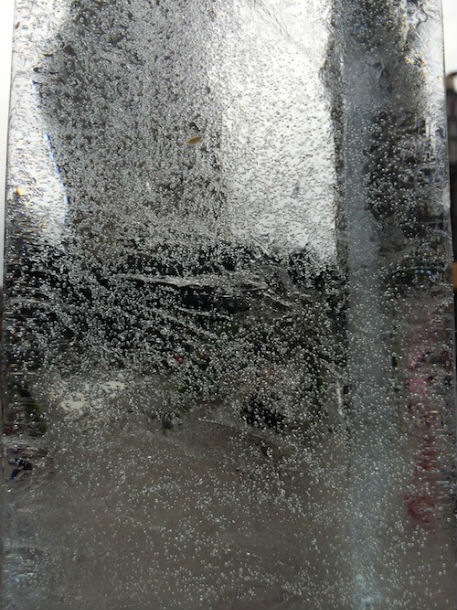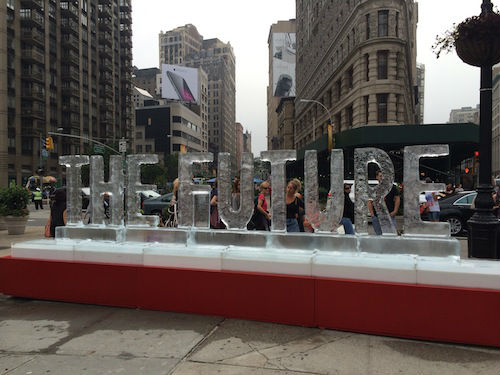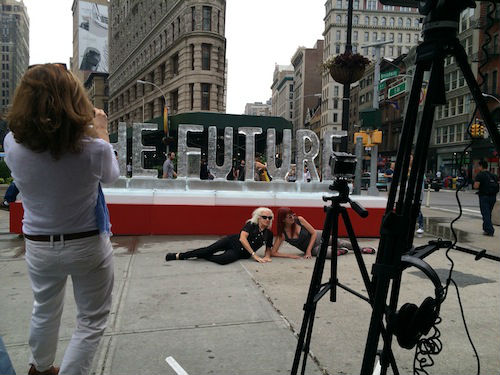Mira Schor
I’ve been tweeting pictures of the melting ice letters of T H E F U T U R E, LigoranoReese’s Dawn of the Anthropocene. One angry tweet asks much GHCs were emitted to create that ice and accuses me of hating this planet!
The question of the carbon footprint of this project is a fair one. This is a quandary: an idea which creates an potentially useful image for a cause may use energy in a not absolutely ecologically correct manner appropriate to the cause, although in the larger scheme of things, thinking of the major sources of global warming, this is a relatively minor infraction though perhaps one that must be judged by the standards of the cause. But I did wonder about this question myself.
However I’d like to point out that I am here as an invited observer. This is not my art work.
One could say that this is a descriptive piece or a documentary one, mirroring or replicating problematics of the culture, where everything that is done for the good as for the bad may have unintended consequences and it is hard to get off the grid to a perfect state of original nature.
Speaking to Marshall Reese about this question, he agrees that these are tough issues, legitimate issues. “These blocks of ice have a lot of energy inside them, it took electricity to make them, to freeze them, power tools use electricity, refrigeration, a tremendous amount of energy, but also hundreds of people have been here today.” Reese and his collaborator Nora Ligorano hope that the piece poses a question of if there will be a future, they hope it will make people stop and think about the future. Of course they wish it could be greener and know that living as an artist in New York, in a Northern hemisphere country, there is the luxury of having these resources and the temptation to use them. They hope to create a piece that will help people see things as a commonality, the minutiae of energy used is another issue.
As Reese points out, if one followed a purist reasoning in this matter, they wouldn’t just not make this sculpture in this material, but they wouldn’t do many things, including fly places, work on computers, use iPhones, as many climate change activists do as a matter of professional course.






